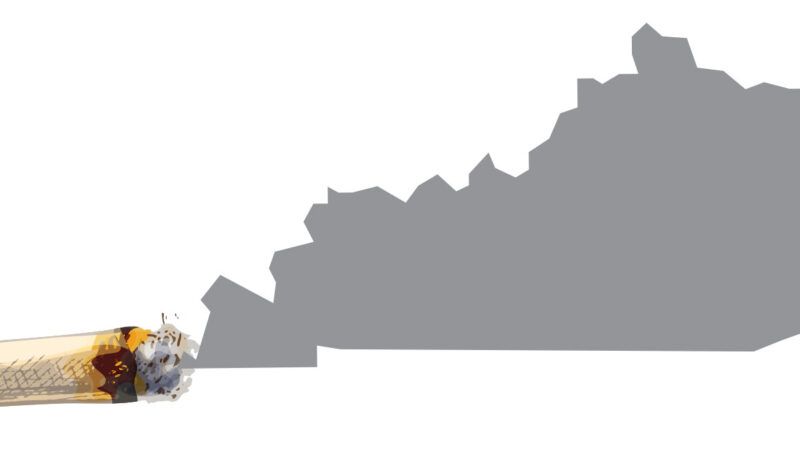Kentucky's Governor Shields Medical Marijuana Users From Prosecution
Gov. Andy Beshear issued a conditional pardon aimed at protecting people who use marijuana for medical purposes from criminal prosecution.

The 37 states that allow medical use of marijuana do not include Kentucky, where polling suggests that 90 percent of residents favor that policy. Because state legislators have not delivered a reform that the vast majority of voters say they want, Gov. Andy Beshear has issued a conditional pardon aimed at protecting people who use marijuana for medical purposes from prosecution.
"Kentuckians throughout the Commonwealth suffer from a multitude of medical conditions from which they deserve relief," Beshear, a Democrat, said in his November 15 executive order. He noted the failure of "past efforts to legalize medical cannabis" in Kentucky's Republican-controlled legislature, including two bills that passed the House of Representatives with bipartisan support but died in the Senate.
Contrary to what some news outlets reported, Beshear's order did not "legalize" medical marijuana. It does not even necessarily mean that patients who use cannabis for symptom relief won't be arrested for marijuana possession, a misdemeanor punishable by up to 45 days in jail and a $250 fine. But it does mean that such individuals won't be prosecuted for that offense, provided they meet several criteria.
To be eligible for the pardon, patients need a doctor's "written certification" that they have been diagnosed with one of 21 listed conditions, which include cancer, epilepsy, multiple sclerosis, AIDS, glaucoma, muscular dystrophy, and "intractable pain." They must buy no more than eight ounces of marijuana outside of Kentucky in a jurisdiction where such sales are legal, which they need to verify with receipts.
The pardon is not a license to grow medical marijuana or to obtain it in Kentucky or any other state where it remains illegal. Cannabis is legally available in several neighboring or nearby states, although some of them do not allow purchases by nonresidents.
Rob Sanders, commonwealth's attorney for Kenton County, warned that Beshear's order would cause confusion for patients, police, and prosecutors. Patients will "still get handcuffed" and "get taken to jail," he told a Cincinnati TV station, although they will subsequently have a chance to show they qualify for the pardon.
Alternatively, police can use their discretion to refrain from arresting people for marijuana possession when they have the requisite documentation. While patients in that situation would not technically receive pardons, they would still benefit from Beshear's order.
"Kentuckians suffering from chronic and terminal conditions are going to be able to get the treatment they need without living in fear of a misdemeanor," Beshear said. But he added that his pardon is "not a substitute for much-needed legislation to fully legalize medical cannabis."

Show Comments (25)